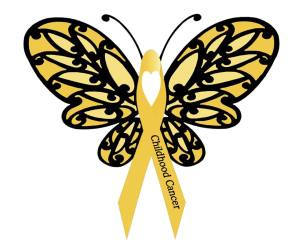 Note: I feel this post is important enough to post across all my blogs.
Note: I feel this post is important enough to post across all my blogs.
September is Childhood Cancer Awareness Month here in the USA. Here are some statistics:
- In 2014, an estimated 15, 780 children (ages 0-19) will be diagnosed with cancer in the USA.
- In 2014, an estimated 1,960 will die of cancer here in the United States.
- That averages to between 5 and 6 children dying of cancer every day, just here in the United States.
There’s a lot of talk about “surviving” cancer, meaning you hit the 5 year mark after diagnosis. That’s a misleading statistic, as I’m about to explain. Here are some more statistics:
- 12% of children diagnosed with cancer do not survive (don’t make it to the 5 year point).
- The average age of diagnosis is six years-old.
- With current treatments, 60% of childhood cancer survivors suffer after-effects.
Campbell’s Story:
A more comprehensive telling of Cam’s story can be found on this blog and on this Facebook group. Here’s the short version: Cam was diagnosed with cancer when she was 3 years old. She beat it. However, certain symptoms came back, which led to re-checks. The cancer had come back. Despite all efforts, including experimental treatments, Campbell died from cancer. Technically, she is a survivor, because she made it past five years (5 years, 2 days). However, Campbell is no longer with us. Therefore, the statistics stating 12% of diagnosed children die of childhood cancer should be higher.
If you do the math, Campbell died at eight years old. She passed away despite heroic efforts from donors to cover expenses and lobby her insurance carrier to cover the experimental treatments, medical personnel performing everything they could do (numerous brain surgeries, clinical trials, experimental treatments), positive thoughts and prayers, and even celebrities taking the time to make some of her wishes come true.
How do I know about Campbell? Campbell’s dad is a Citadel classmate of mine. Because of Campbell’s fight, I became more educated on childhood cancer. Childhood cancer is the leading disease cause of death in children. Every form of childhood cancer we can find a cure for means more bright, young lives saved. Furthermore, given how much damage current treatments do, we need better treatments for survivors. All of this requires research. Research requires funding. As a result, I’m trying to raise awareness about it now.
What We Can Do:
I don’t believe in issuing challenges. If this touches you enough to give, then please do. If not, I realize there are many excellent causes and efforts out there. Please try and give something to one or more that have meaning to you. Here’s what Cam’s family specifically asked for, because this puts research dollars forward for the doctors who were treating Cam and her particular form of cancer. You can mail donations to:
Weill Cornell Medical College with GREENFIELD Ependymoma Research in the memo field.
The mailing address:
Ana Ignat
Department Administrator
525 East 68th St, Box 99
New York, NY 10068
Or you could choose another childhood cancer charity/research fund. If you do, please check with a site like Charity Navigator to see how efficiently that charity uses the donations it receives. I know that particular charities in the past have sounded great but when you do the research… not so much. That’ll help you ensure that more of your donated money goes to research.
